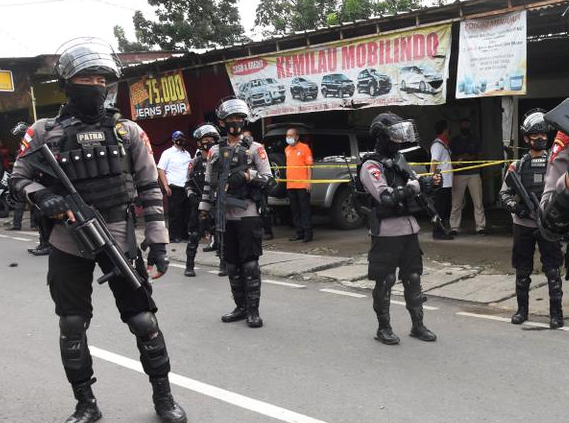Palu (Indonesia): Indonesia’s most wanted militant with ties to the Islamic State group was killed Saturday in a gunbattle with security forces, the military said, in a victory for the counterterrorism campaign against extremists in the jungles of Sulawesi island.
Ali Kalora was one of two militants killed in the shootout, said Central Sulawesi’s regional military chief Brig. Gen. Farid Makruf. He identified the other suspected extremist as Jaka Ramadan.
The two men were fatally shot during a raid late Saturday by a joint team of military and police officers in Central Sulawesi province’s mountainous Parigi Moutong district, Makruf said. It borders Poso district, considered an extremist hotbed in the province.
“Ali Kalora was the most wanted terrorist and leader of MIT,” Makruf said, referring to the Indonesian acronym of the East Indonesia Mujahideen network, a militant group that pledged allegiance to the Islamic State in 2014.
He said that security forces were searching for the four remaining members of the group.
The East Indonesia Mujahideen has claimed responsibility for several killings of police officers and minority Christians.
Security operations in Central Sulawesi have intensified in recent months to try to capture members of the network, particularly targeting Ali Kalora, the group’s leader.
Kalora had eluded capture for more than a decade. He took over from Abu Wardah Santoso, who was killed by security forces in July 2016. Dozens of other leaders and members of the group have been killed or captured since then.
In May, the militants killed four Christians in Kalemago village in Poso district, including one who was beheaded. Authorities said the attack was in revenge for the killing in March of two militants, including Santoso’s son.
Indonesia, the world’s most populous Muslim-majority nation, has kept up a crackdown on militants since bombings on the tourist island of Bali in 2002 killed 202 people, mostly foreigners.
Attacks on foreigners have been largely replaced by smaller, less deadly strikes targeting the government, police and anti-terrorism forces.
AP
